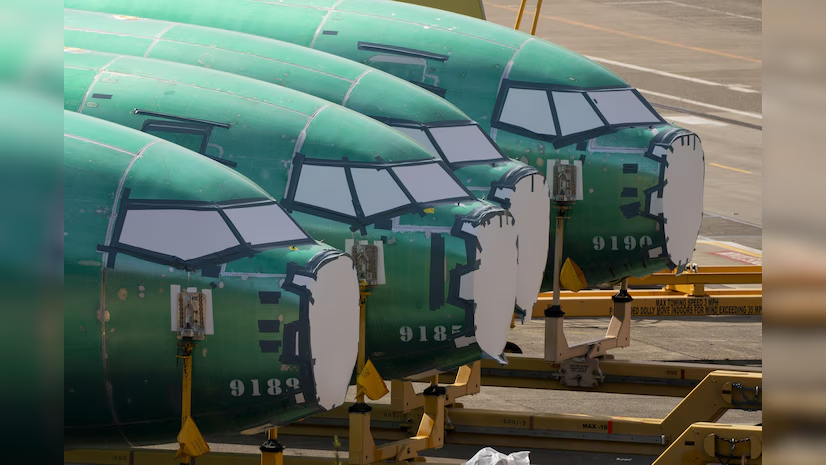
Introduction
In a significant development for global aviation and international trade, China has lifted its ban on Boeing aircraft deliveries following a 90-day mutual tariff suspension agreed upon with the United States. This decision marks a pivotal moment in the ongoing efforts to stabilize and improve the complex trade relationship between the world’s two largest economies. The resumption of Boeing deliveries to China not only signals a thaw in trade tensions but also has profound implications for the aviation industry, global supply chains, and geopolitical dynamics.
Background: The Boeing Ban and US-China Trade Tensions
The relationship between Boeing and China has been strained in recent years due to escalating trade tensions and safety concerns. In 2019, following two fatal crashes involving the 737 MAX aircraft, China became the first country to ground the model, leading to a suspension of most Boeing deliveries. Compounding the issue, the US-China trade war saw both nations imposing steep tariffs on each other’s goods, including aerospace products. China’s retaliatory tariffs on US-made aircraft made Boeing planes significantly more expensive for Chinese carriers, leading to canceled orders and returned aircraft.
The situation worsened when Chinese authorities instructed domestic airlines to halt new orders for Boeing jets and to seek approval before receiving previously ordered aircraft. This move jeopardized Boeing’s position in one of its most important future markets, as China represents a significant portion of global aircraft demand.
The 90-Day Tariff Suspension: A Diplomatic Breakthrough
In a recent diplomatic engagement in Geneva, the United States and China agreed to a 90-day mutual suspension of certain tariffs, including those affecting aerospace products. This temporary truce aims to provide a window for further negotiations and to alleviate the economic pressures resulting from the prolonged trade war. The agreement includes a significant reduction in reciprocal tariffs, which had previously exceeded 100%, thereby making Boeing aircraft more financially viable for Chinese airlines.
The tariff suspension is seen as a strategic move by both nations to foster a more cooperative trade environment. For the United States, it offers an opportunity to support domestic manufacturers like Boeing, while for China, it provides access to advanced aerospace technology and supports the expansion of its aviation sector.
Resumption of Boeing Deliveries to China
Following the tariff suspension, China has officially lifted its ban on Boeing aircraft deliveries. Chinese authorities have begun notifying airlines and relevant government bodies that aircraft deliveries from the United States can resume. This decision marks a significant shift, as deliveries had previously halted due to high tariffs and regulatory concerns.
Boeing has a substantial stake in the Chinese aviation market, which constitutes around 10% of its commercial backlog. The company had anticipated delivering 50 jets to Chinese carriers in 2025, including 41 already built or under construction. Despite interest from other airlines, Boeing had hesitated to redirect Chinese-assigned jets, partly due to customization issues like seating configurations. With the lifting of the ban, Boeing now expects China to accept 25 of the 30 remaining 737 MAX jets built before 2023 and at least four 777 freighters currently in production.
The resumption of deliveries includes various models:
- 737 MAX: Deliveries of the 737 MAX, Boeing’s best-selling narrow-body aircraft, have resumed after a regulatory pause. The Civil Aviation Administration of China (CAAC) had previously halted deliveries due to concerns over batteries used in cockpit voice recorders. With these issues addressed, Chinese airlines are now receiving the aircraft, which is crucial for meeting the growing demand for domestic and regional air travel.
- 787 Dreamliner: In December 2023, Boeing delivered its first 787 Dreamliner to China since 2019, signaling a potential end to the freeze on deliveries of this model. The 787 is vital for long-haul international routes, and its return to Chinese skies reflects a broader recovery in global aviation.
- 777 Freighters: Boeing has also resumed deliveries of its 777 freighter aircraft to Chinese carriers, including Air China Cargo. These wide-body freighters are essential for supporting China’s booming e-commerce sector and the increasing demand for air cargo services. The 777 freighter’s capabilities, such as a payload exceeding 102 tons and advanced cargo handling systems, make it a valuable asset for Chinese logistics operations.
Implications for Boeing and the Aviation Industry
The lifting of the ban and the resumption of deliveries have significant implications for Boeing and the broader aviation industry:
- Financial Recovery: Boeing has faced severe financial challenges in recent years, including manufacturing setbacks, legal issues, and a substantial cash burn. The resumption of deliveries to China, one of its largest markets, is a critical step toward financial recovery and stability.
- Supply Chain Optimization: With a backlog of undelivered aircraft, Boeing can now streamline its supply chain and production processes. The ability to deliver completed aircraft reduces storage costs and allows for better allocation of resources.
- Market Confidence: The renewed engagement with China boosts investor and market confidence in Boeing’s prospects. Positive developments in such a significant market can influence stock performance and attract new orders.
- Competitive Dynamics: The resumption of Boeing deliveries may impact the competitive landscape, particularly concerning Airbus, which has been gaining market share in China during Boeing’s absence. Boeing’s return could intensify competition and influence future procurement decisions by Chinese airlines.
Broader Economic and Geopolitical Considerations
The decision to lift the ban on Boeing deliveries extends beyond commercial interests and reflects broader economic and geopolitical considerations:
- US-China Relations: The 90-day tariff suspension and subsequent resumption of aircraft deliveries indicate a willingness by both nations to engage in constructive dialogue and reduce trade tensions. Such cooperation can pave the way for more comprehensive agreements and mutual economic benefits.
- Global Trade Stability: The aviation industry is a bellwether for global trade health. Resuming Boeing deliveries to China suggests a stabilization of trade relations, which can have positive ripple effects across various sectors and economies.
- Aviation Industry Recovery: The COVID-19 pandemic severely impacted the aviation industry. The resumption of aircraft deliveries signifies a step toward recovery and growth, particularly in the Asia-Pacific region, which is expected to lead global aviation demand in the coming decades.
Future Outlook
While the resumption of Boeing deliveries to China is a positive development, several factors will influence the future trajectory:
- Ongoing Negotiations: The 90-day tariff suspension is temporary. Sustained progress will depend on the outcomes of ongoing trade negotiations and the ability of both nations to address underlying issues.
- Regulatory Compliance: Boeing must continue to meet stringent safety and regulatory standards to maintain trust and ensure the uninterrupted delivery of aircraft.
- Market Demand: The demand for new aircraft in China remains robust, with Boeing estimating that Chinese airlines will need over 8,500 new commercial planes by 2042. Meeting this demand will require consistent production and delivery capabilities.
- Geopolitical Stability: The broader geopolitical climate will influence trade relations and, by extension, the aviation industry. Continued diplomatic engagement and conflict resolution are essential for long-term stability.
